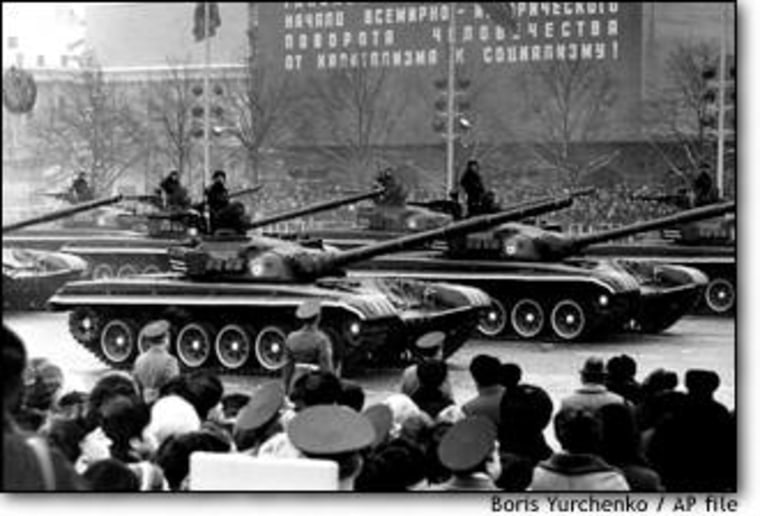In the 1991 Gulf War, Babylon Lions, as Iraq’s T-72 tanks were popularly called, supposedly constituted one of Saddam’s Hussein’s most potent weapons, manned by his elite Republican Army and present in the thousands. Saddam used T- 72s for eight years in the war against Iran and his army’s tactics, while regarded as overly conservative by U.S. intelligence, did not betray any serious flaws.
The lion, it turned out, had no teeth, at least when pitted against America M1A1 Abrams, the British Challenger and older U.S. M-60 A3s in the Gulf War. Since then, both the British tanks (Challenger 2) and the Americans (M1A2 varieties) have only improved. Iraq, in effect, is stuck with an obsolete tank force.
This is not to say the T-72 isn’t dangerous. Caught by surprise, any tank is in danger from the Soviet-model’s 125 mm smooth bore gun. Iraq built thousands of the T-72M1 varieties locally. In recent years, many were equipped with laser range-finders for ensuring higher hit probabilities at ranges up to 2,000 meters.
The “thousands” of the late 1980s are long gone — victim mostly of ‘tank-plinking’ by U.S. and British aircraft during the Gulf War. According to International Institute for Strategic Studies (IISS) Iraq could field some 700 T-72s in 2001.
U.S. officers don’t think much of these weapons any more. They argue that the tank is more like an “Iron Coffin with wheels when up against new technology possessed by the Americans,” as one U.S. tank officer put it.
“These tanks have to be used with lot of skill to survive attack from the new technology tanks,” an Army spokesman said. “They are irrelevant because of their speed and they are less likely to hit their targets the first time.”
